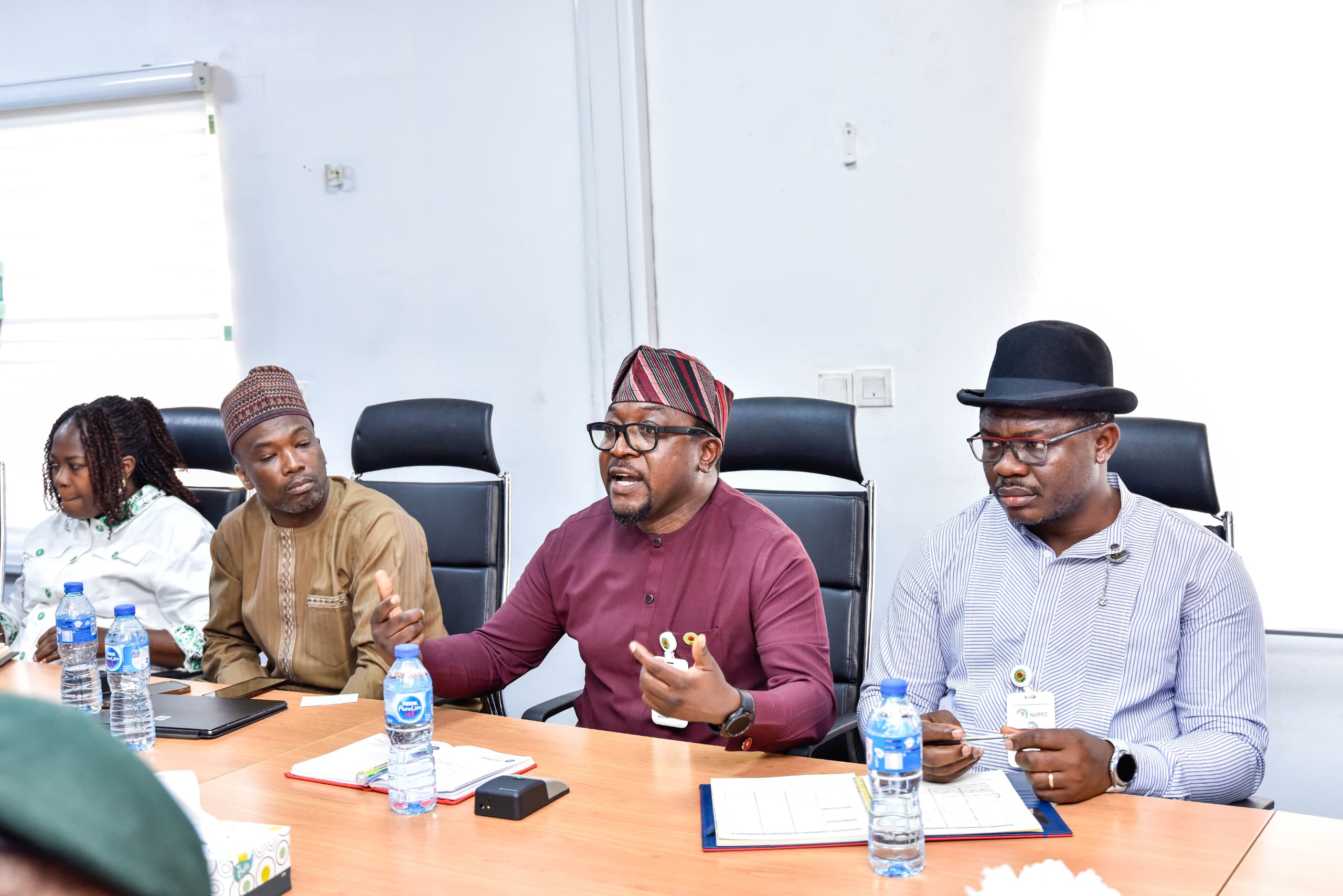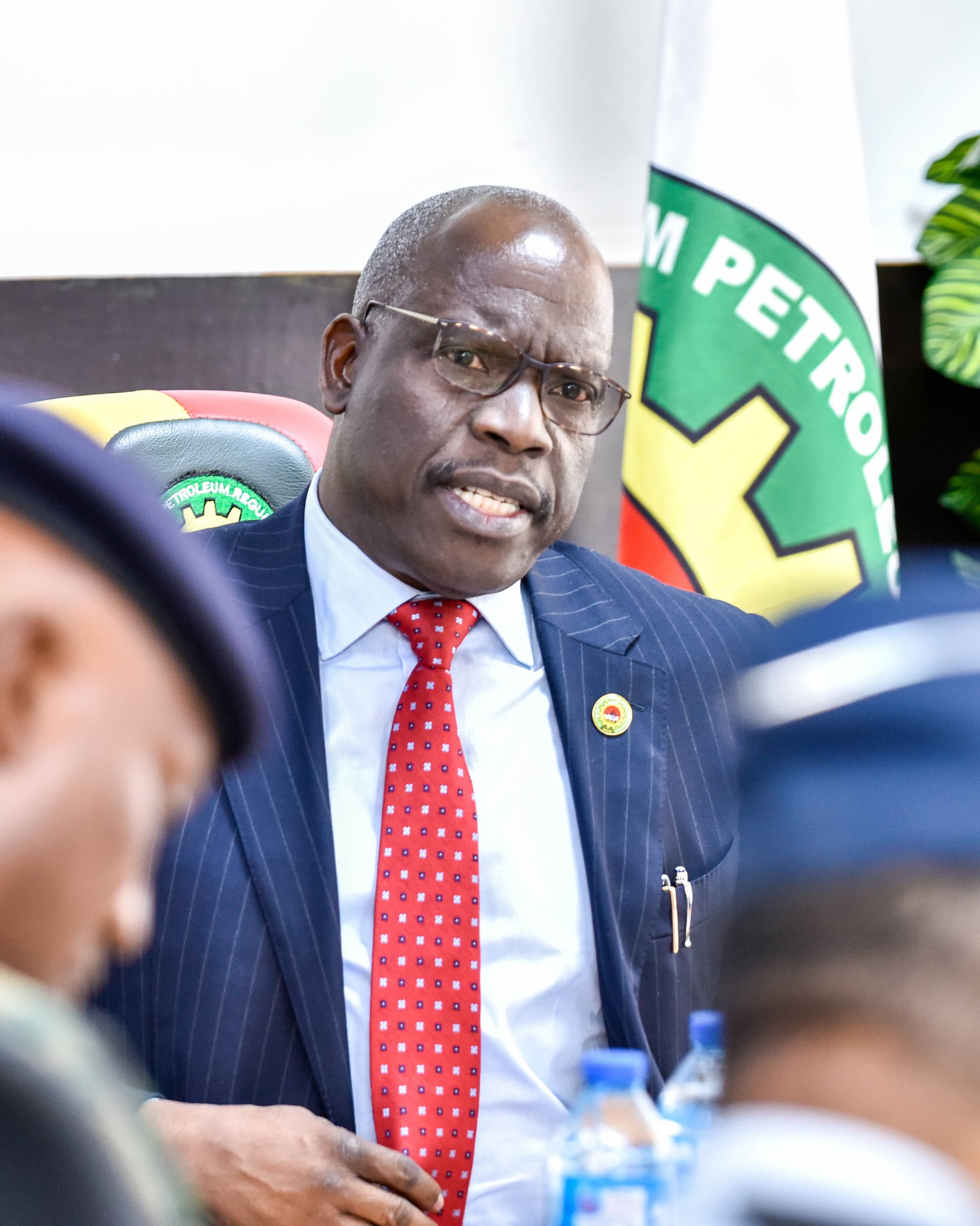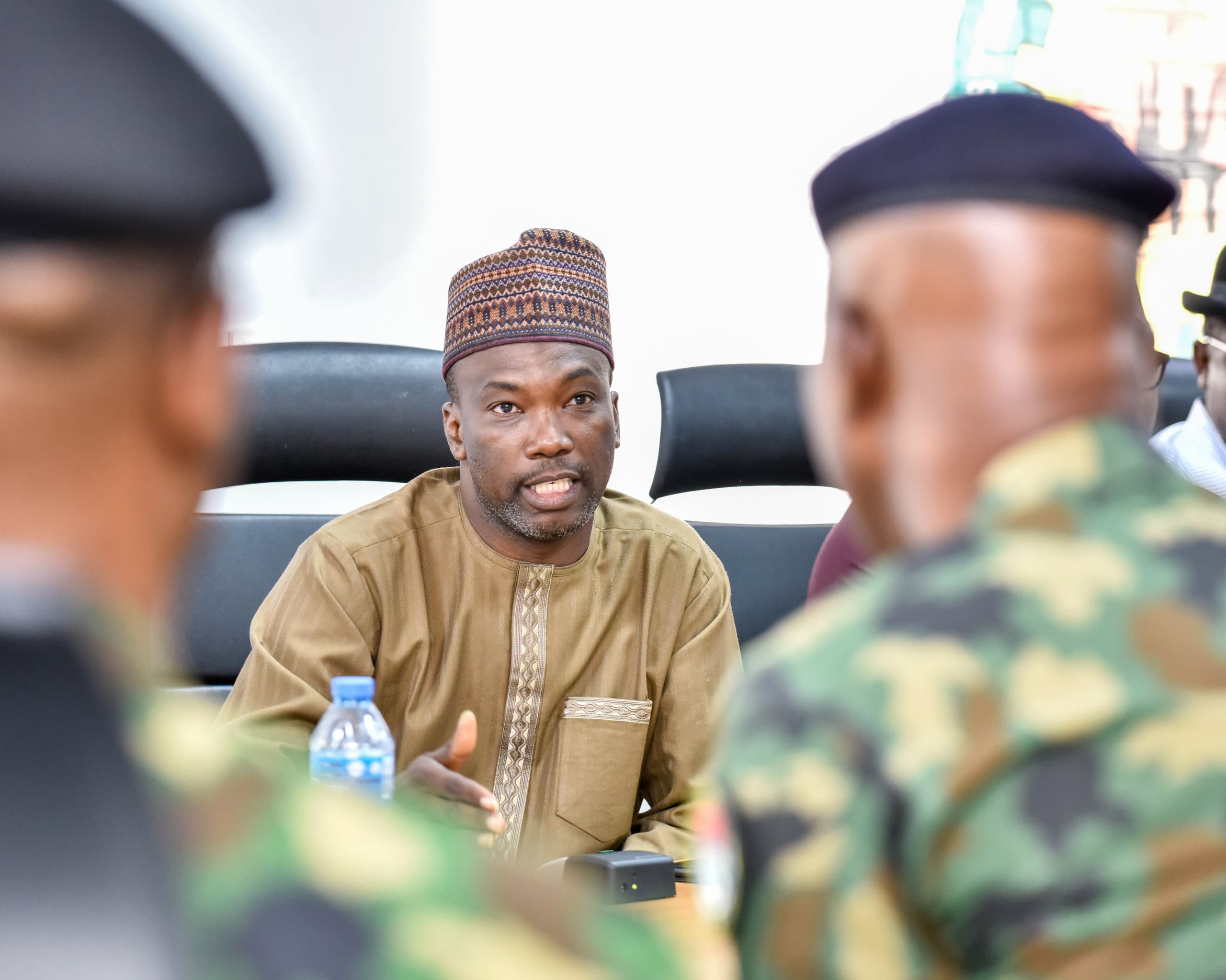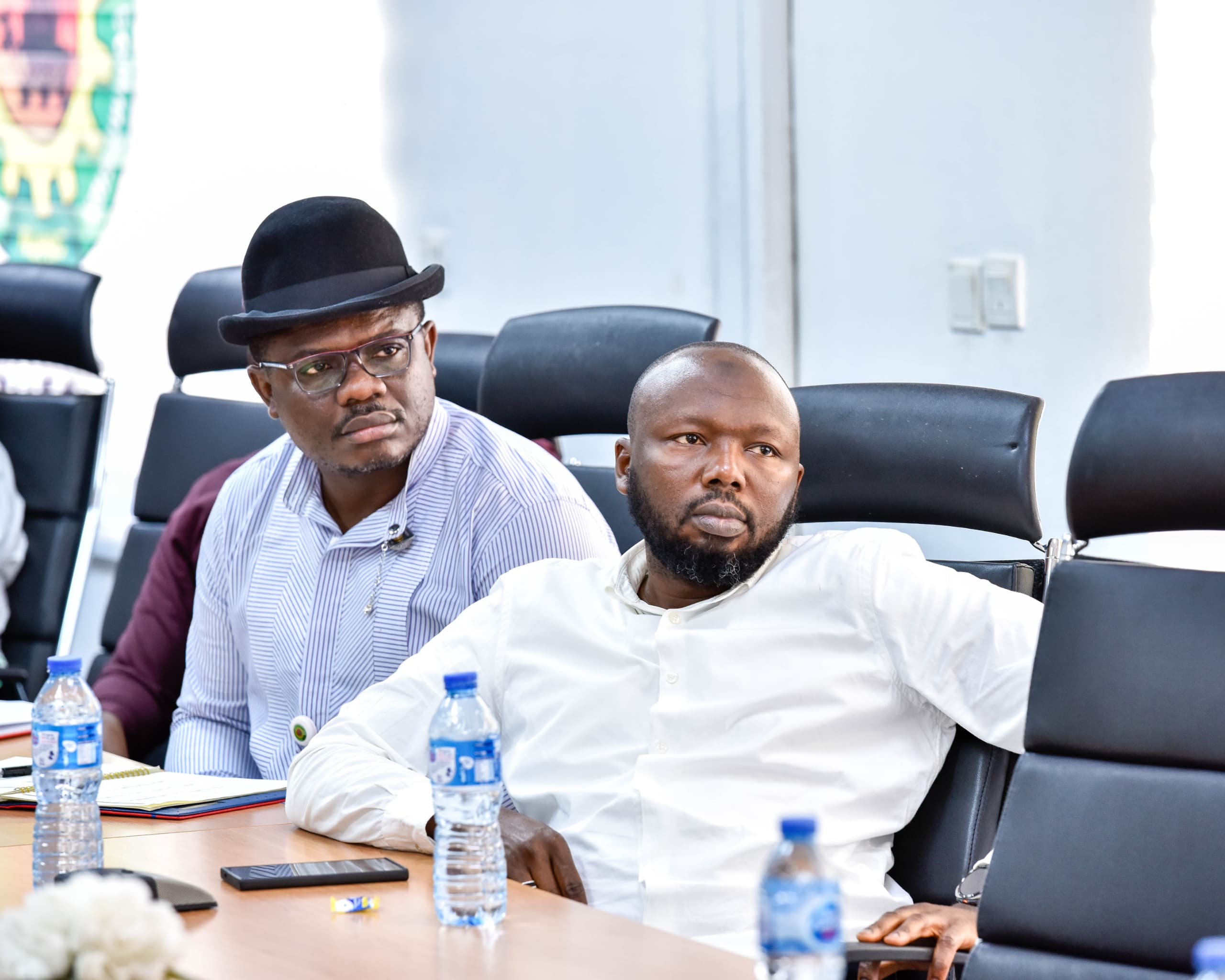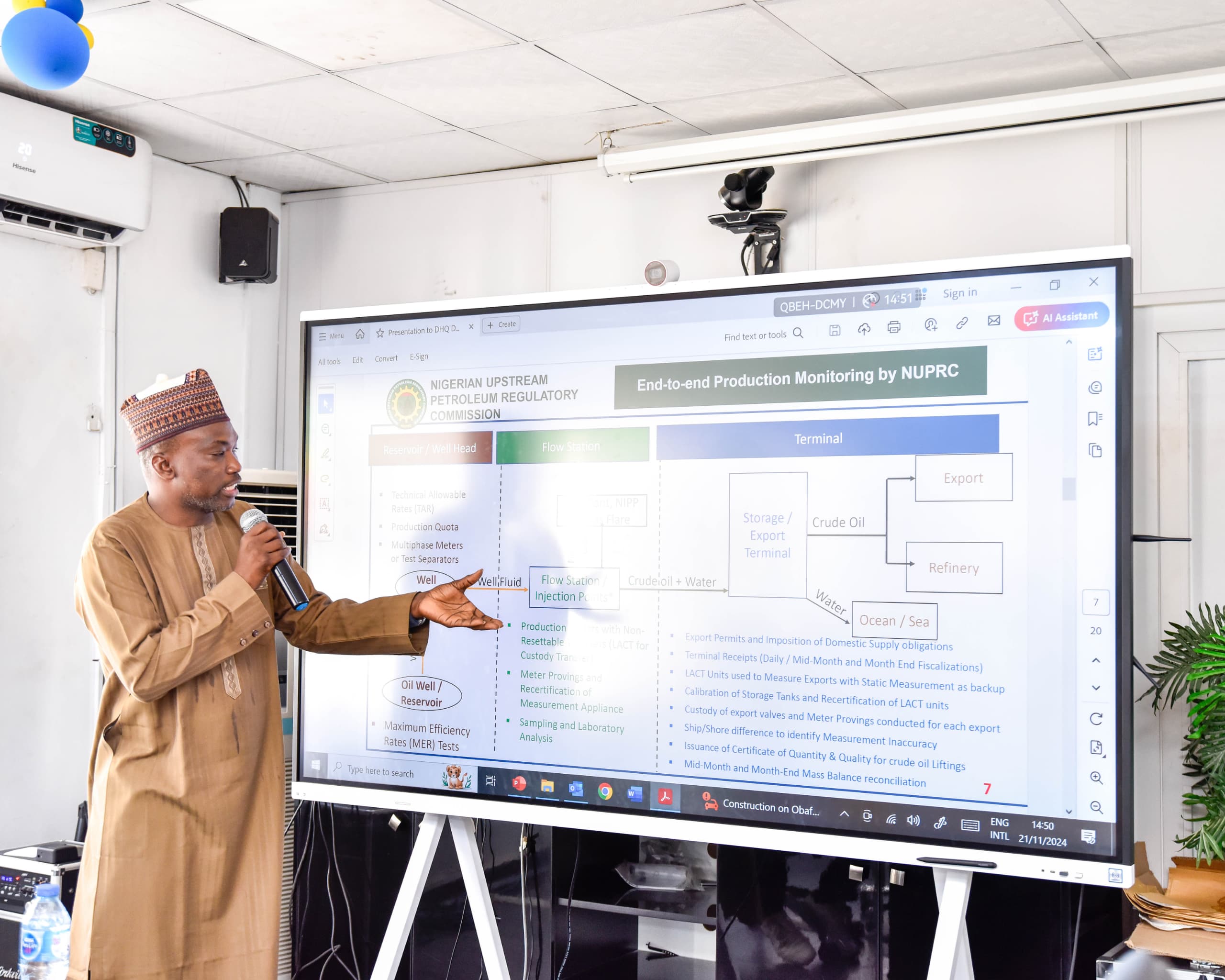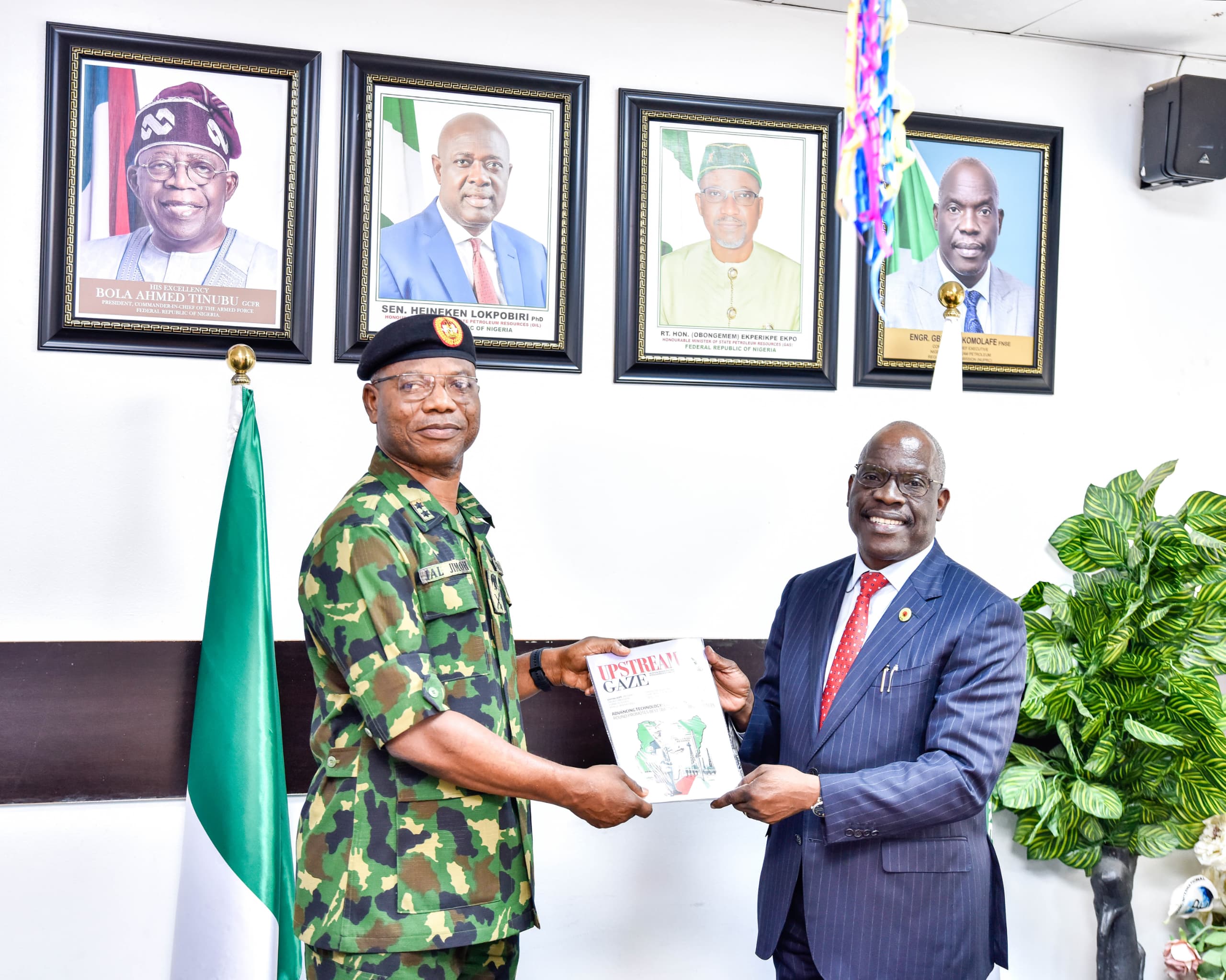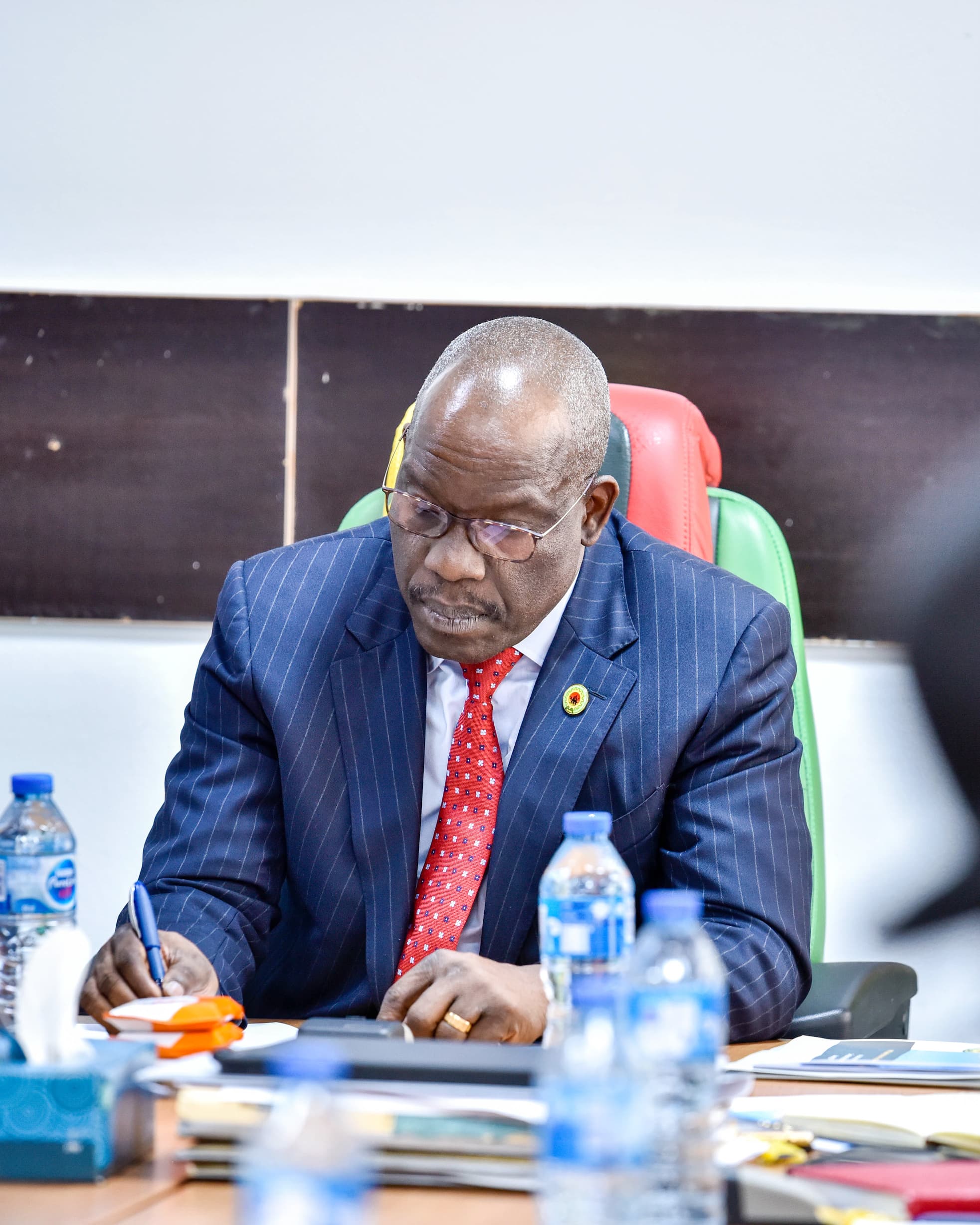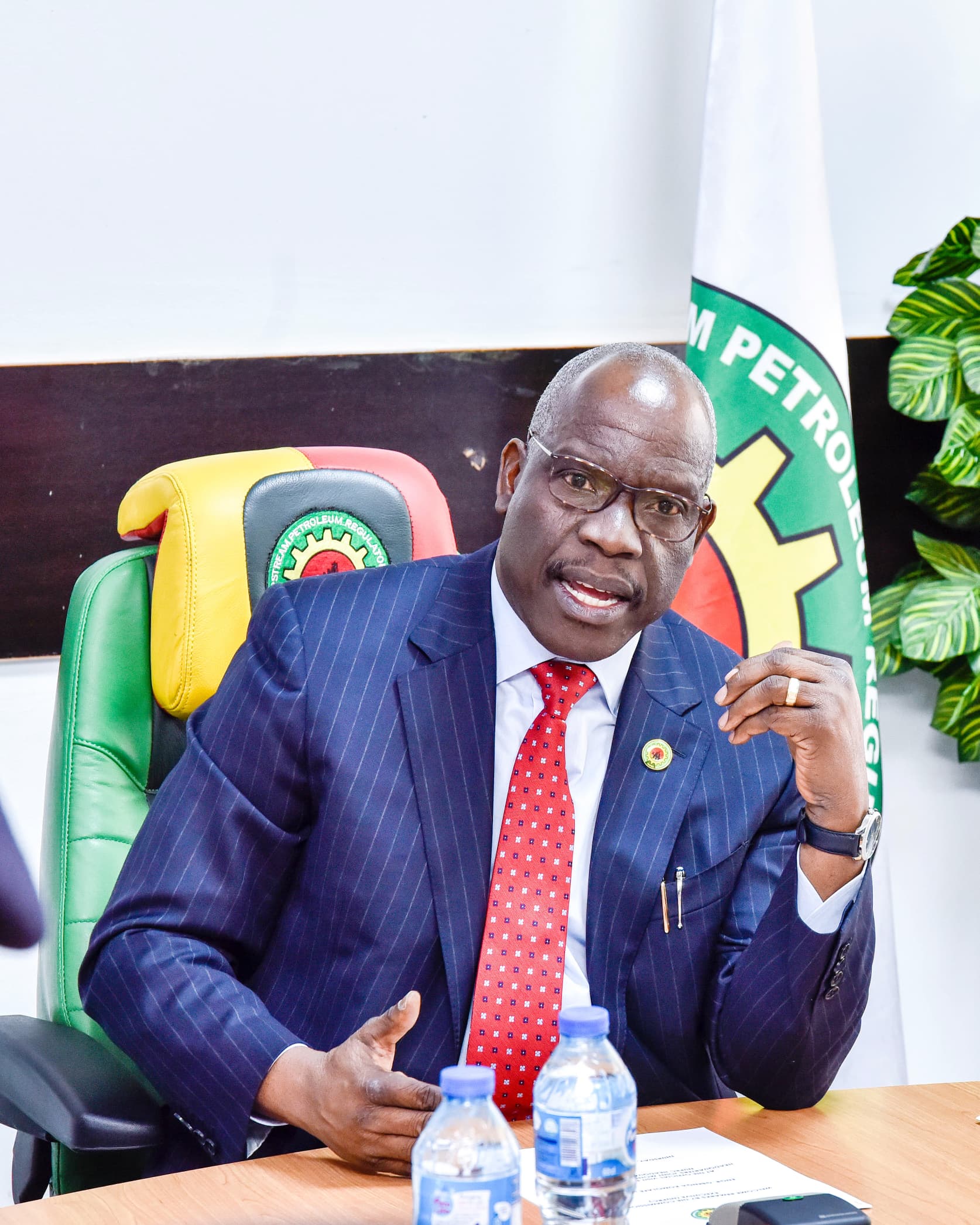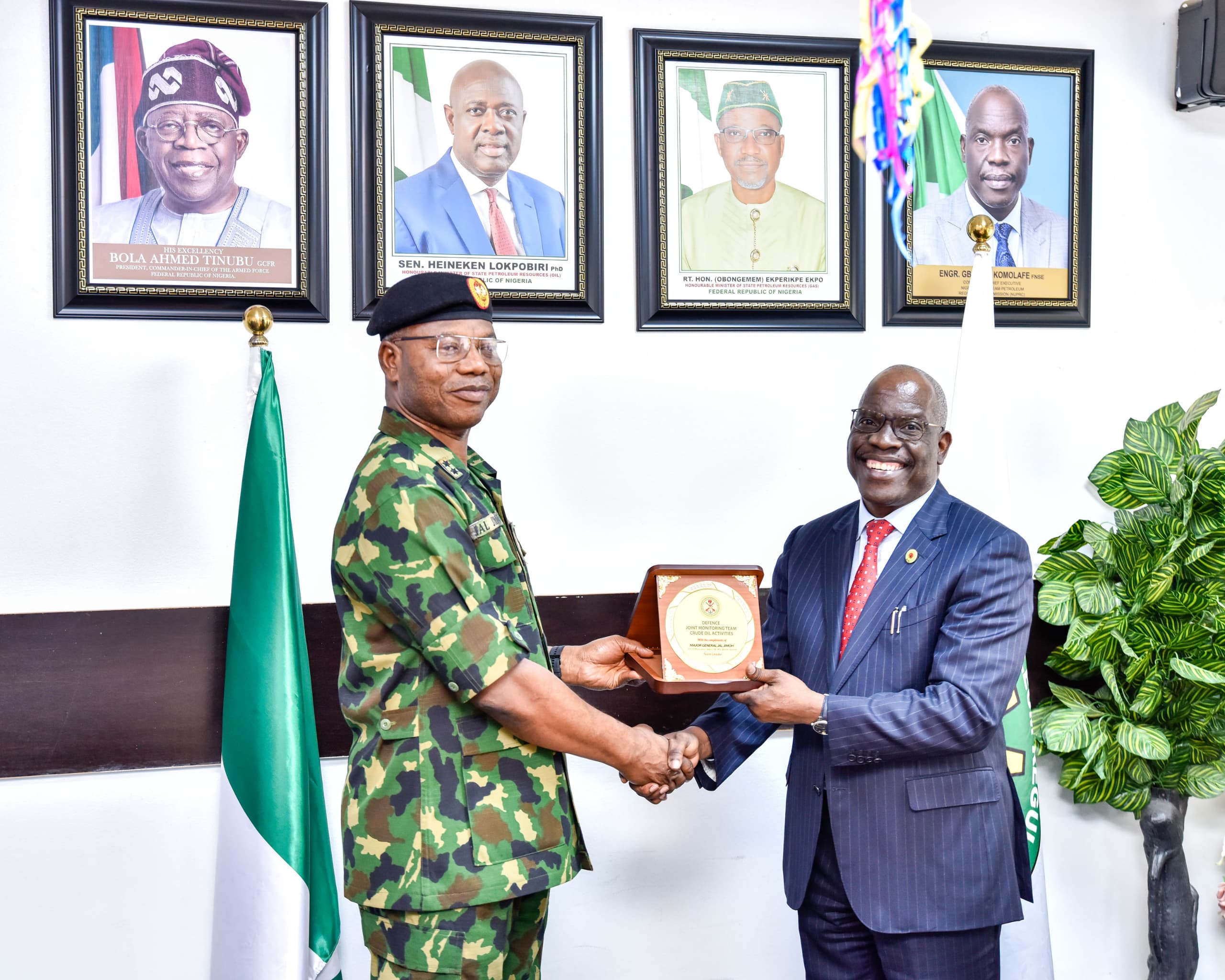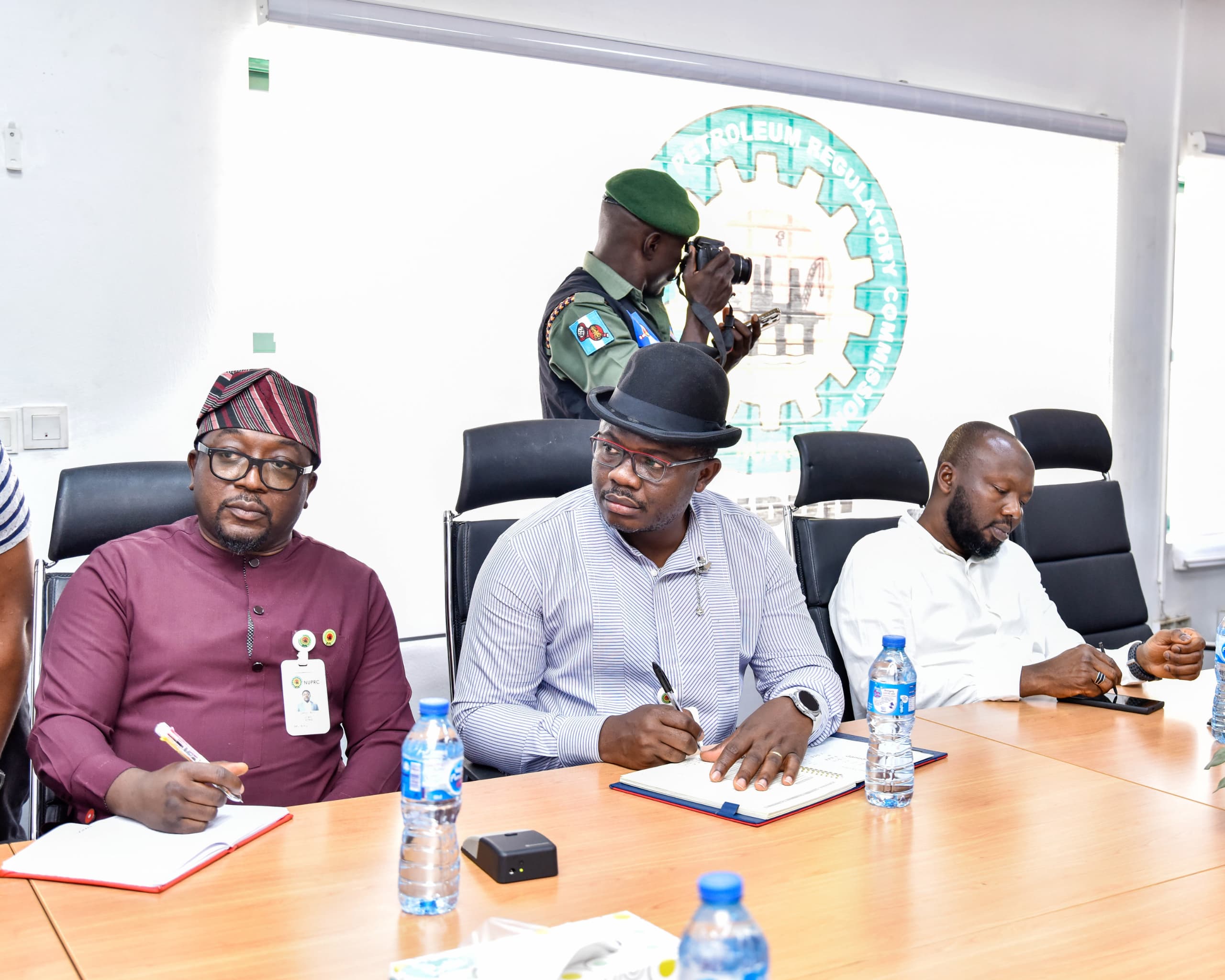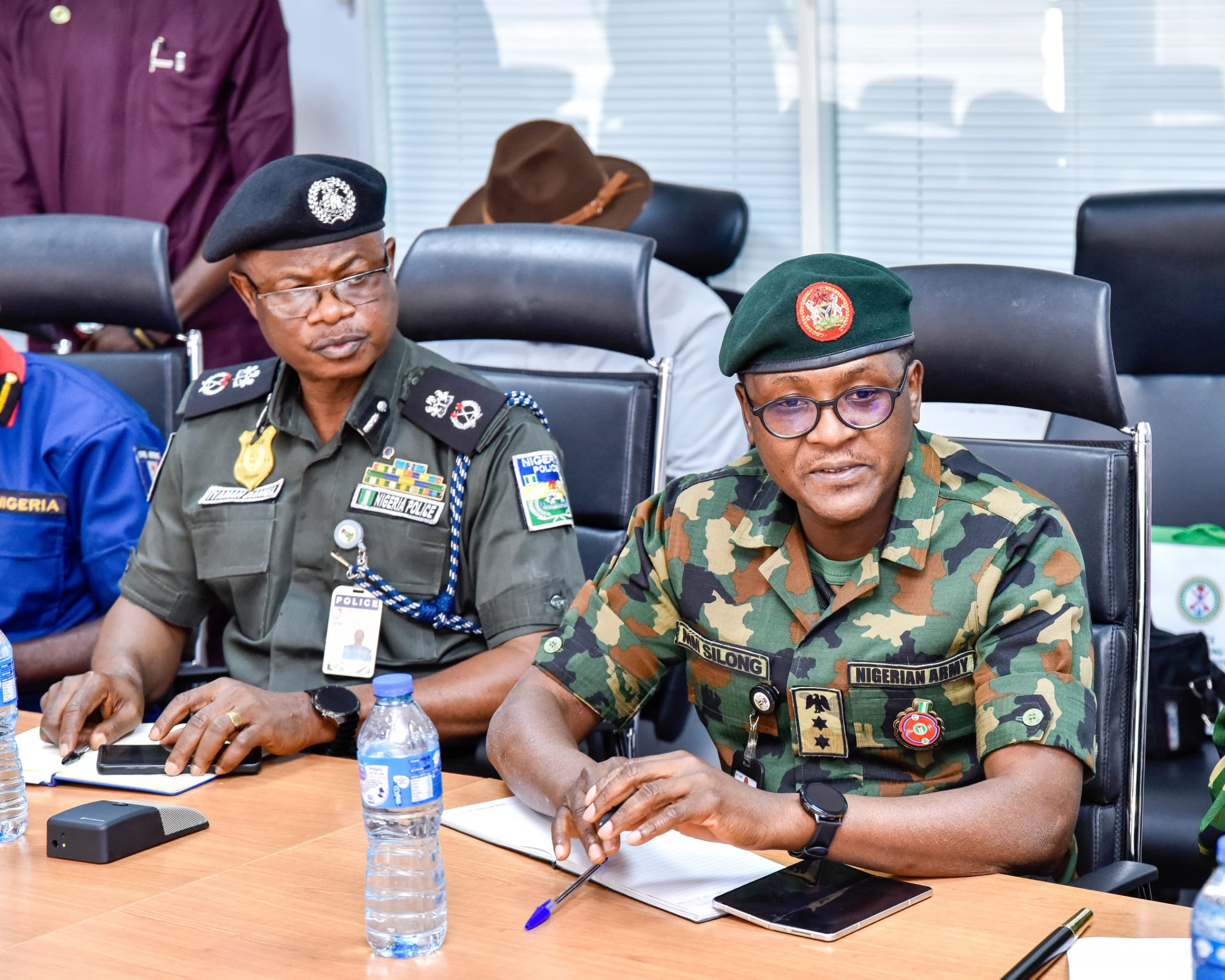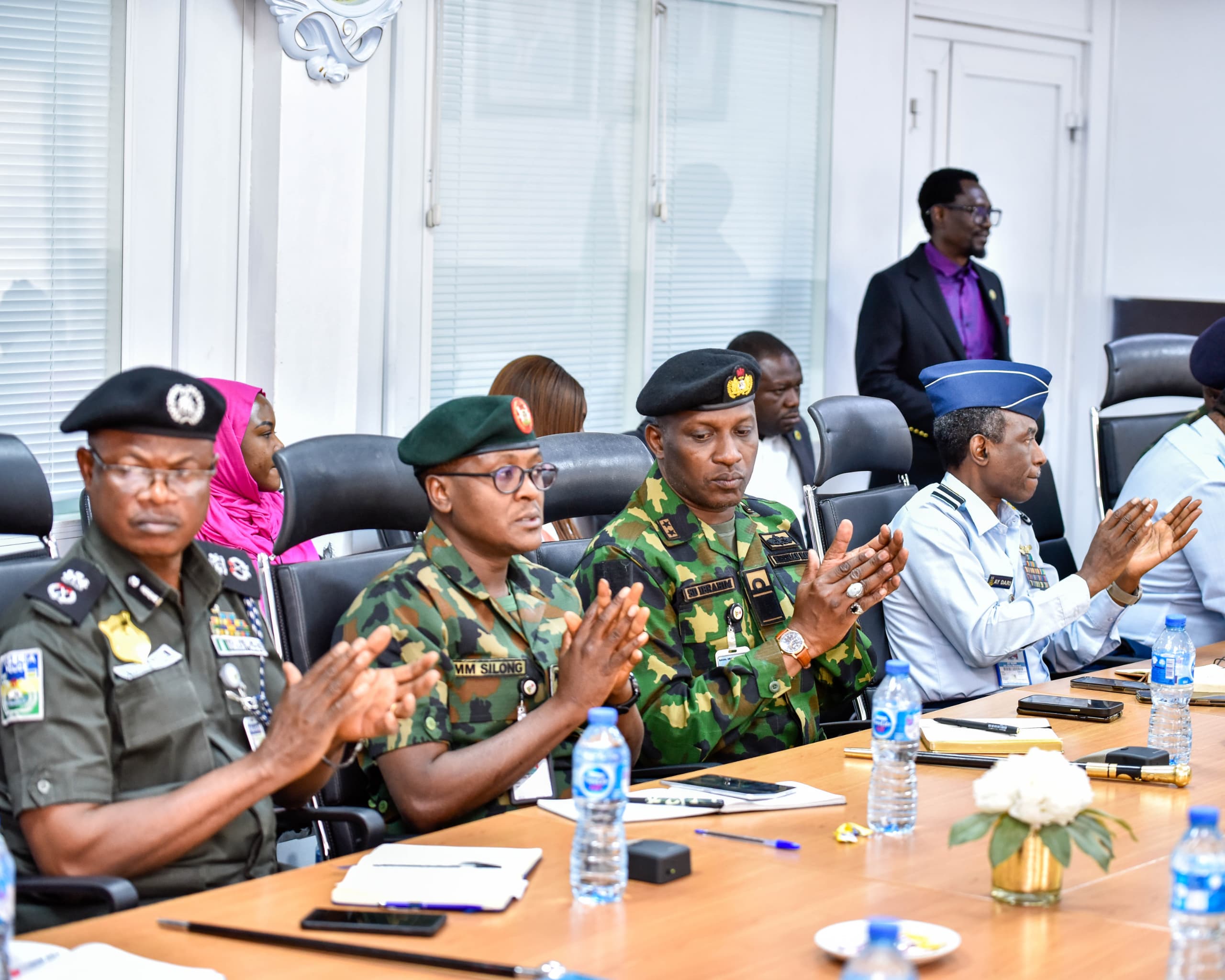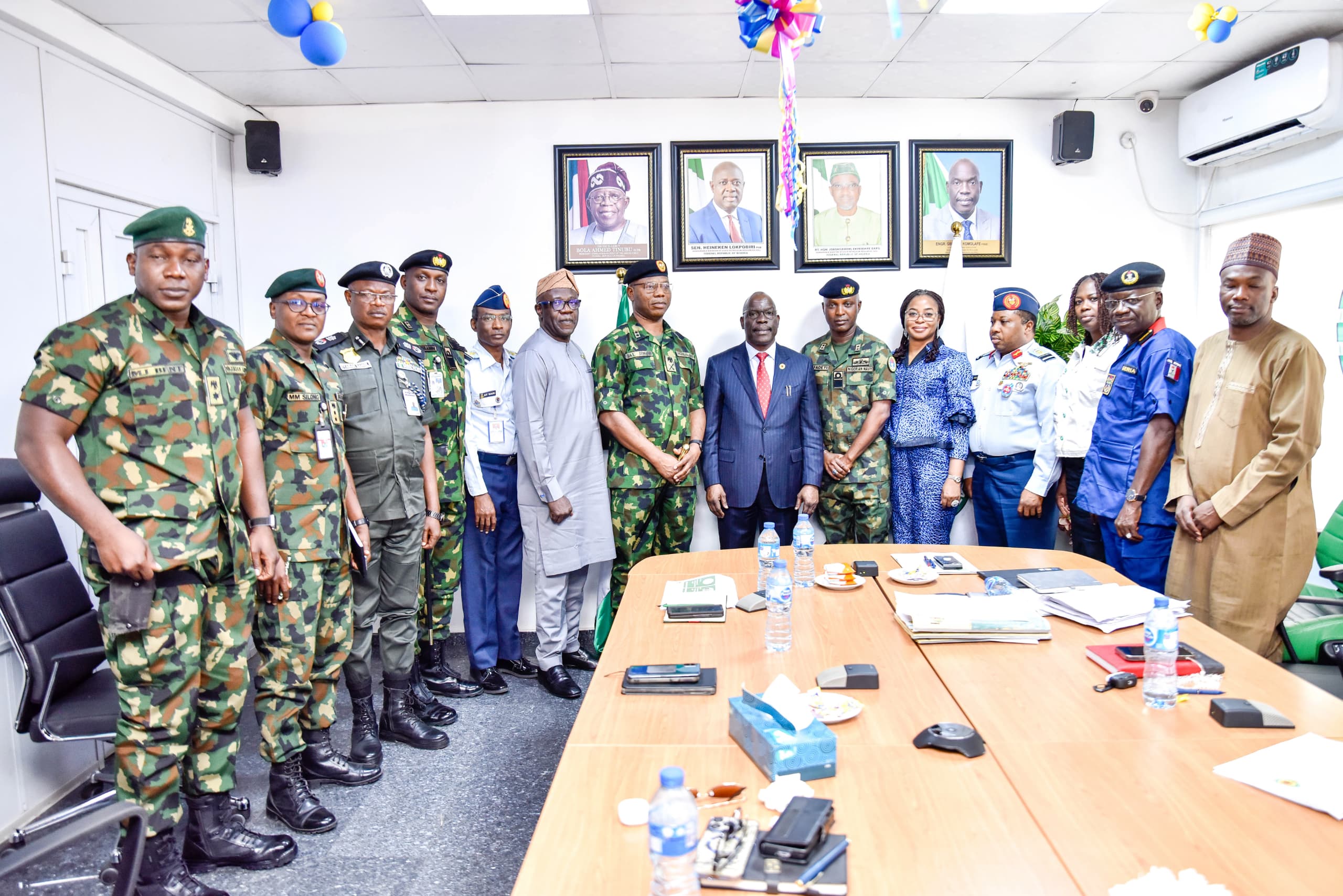The Nigerian Upstream Petroleum Regulatory Commission (NUPRC) recently hosted the Defense HQ Joint Monitoring Team (JMT) on crude oil activities, further solidifying their collaborative efforts towards curbing crude oil theft and loss.
The Commission Chief Executive of the NUPRC, Engr Gbenga Komolafe welcomed the team and provided an overview of the Commission’s activities and initiatives. He emphasized that the NUPRC, governed by the Petroleum Industry Act(PIA), is committed to regulating technical and commercial upstream petroleum activities.
Komolafe highlighted the Commission’s core objective of optimizing Nigeria’s hydrocarbon resources by increasing production and eliminating crude oil loss and theft. To achieve this, the NUPRC has implemented regulations such as the Audit of Upstream Measurement Equipment and Facilities in the Nigerian Oil and Gas Industry and the Advance Cargo Declaration Solution.
These regulations aim to address systemic gaps, including outdated measurement equipment and the lack of comprehensive data. The Audit regulation seeks to establish reliable baseline data for all measurement points, while the Advance Cargo Declaration Solution will track crude oil transportation and export from Nigeria.
The CCE explained that the Federal Executive Council has approved phase one of these two regulations. The Commission is currently in the stock-taking phase to ascertain the engineering integrity of equipment and facilities, and a feasibility study is ongoing on the devices that will track crude oil transport and export.
Komolafe also discussed the crude oil loading permit process, which has introduced a transparent system ensuring stakeholders have representatives on the portal with access to the permits issued by the Commission. This measure enables stakeholders to differentiate genuine permits from fake ones, thus clamping down on crude oil theft.
He further noted that training was recently conducted for officers and personnel of the Nigerian Navy and Customs on alternative crude oil evacuation operations, such as barging, trucking, and export fiscalization at terminals.
The CCE expatiated on the recently launched project 1MMBOPD, spearheaded by the Commission, which is aimed at boosting the country’s oil production by 1 million barrels per day in the next 12 to 24 months. This initiative is a collaborative effort between the government, oil companies, and other stakeholders to co-create solutions and develop alternative funding mechanisms to increase oil production in the short to medium term. The CCE noted that the security forces play a vital role in the success of the initiative stating that their participation is essential in ensuring the security of oil infrastructure, preventing crude oil theft, and providing a stable environment for oil production to thrive.
The CCE expressed his sincere appreciation to the members of the Joint Monitoring Team (JMT) for their tireless efforts in combating crude oil theft and loss, as well as increasing production. He emphasized the synergistic nature of this effort, with the security forces addressing kinetic aspects and the Commission handling non-kinetic aspects.
The JMT delegation, led by Major General Jal Jimoh of the Nigerian Army, expressed gratitude to the Commission for addressing concerns related to upstream activities. The team raised questions and concerns regarding crude oil production, export, and theft, which the CCE addressed.
The meeting demonstrated the NUPRC’s commitment to collaboration and transparency in the oil and gas sector. By working together with the Defense Joint Monitoring Team, the Commission aims to strengthen the industry’s integrity, curb crude oil loss, and optimize Nigeria’s hydrocarbon resources.

